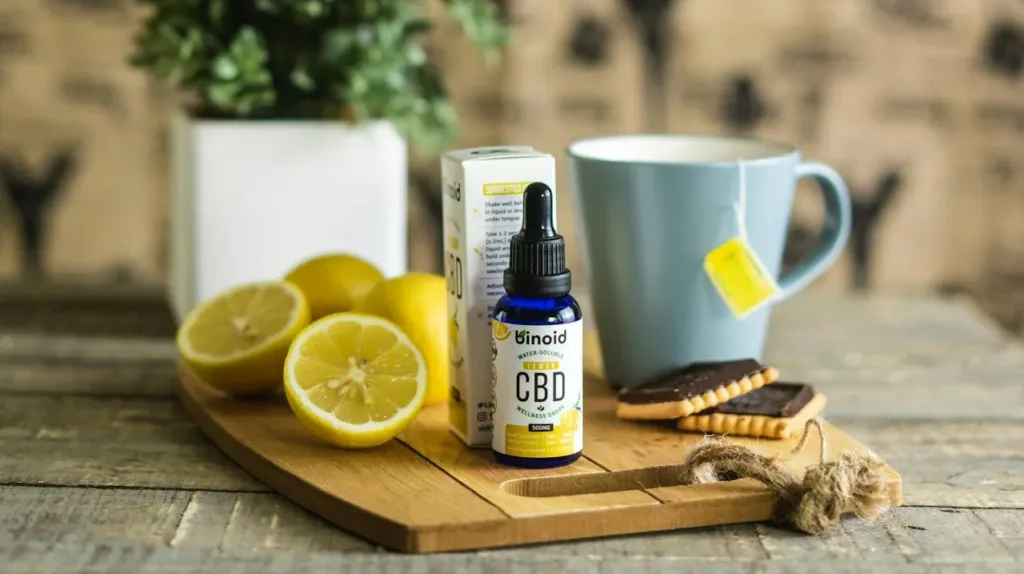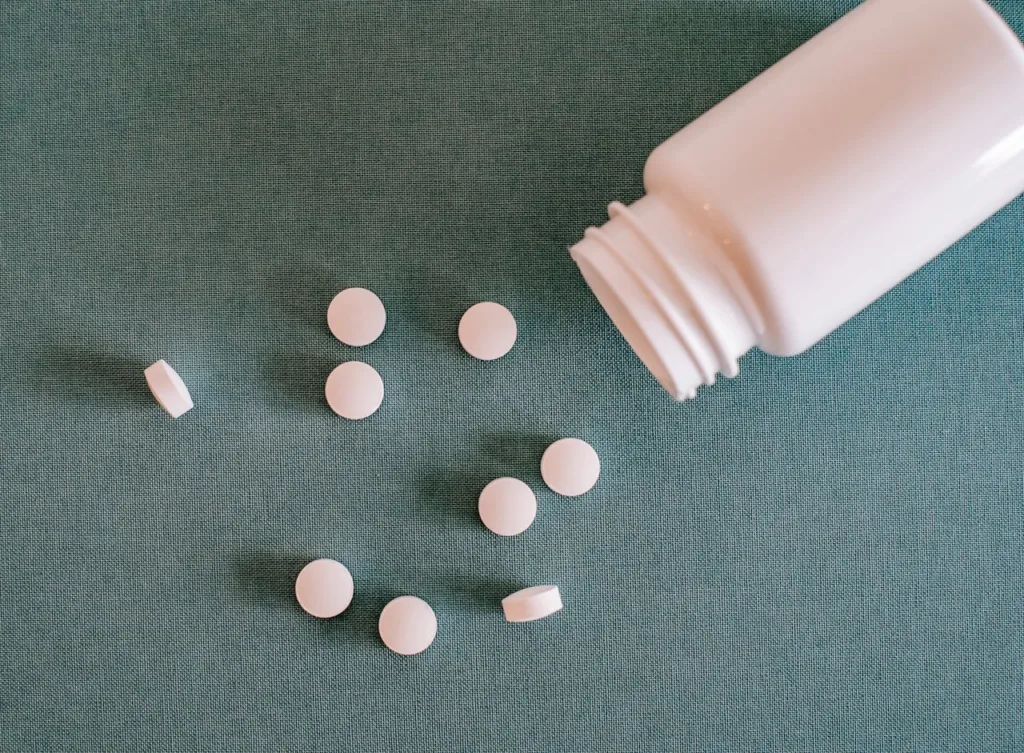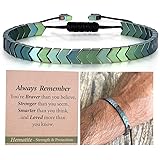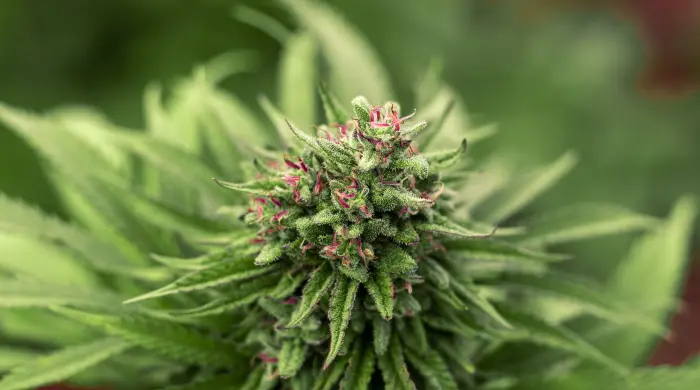Table of Contents
- Why Prescription Meds Might Be Holding You Back
- The Natural Solution People Are Turning To
- What Makes This Little Bottle So Powerful?
- Can CBD Really Replace Your Meds? Here’s the Truth
- Real Stories: How People Freed Themselves from Side Effects
- Is CBD the Right Choice for You?
- Ready to Make the Switch? Here’s How to Start
1. Why Prescription Meds Might Be Holding You Back
In today’s fast-paced world, prescription medications have become a cornerstone of modern healthcare. When a problem arises—whether it’s chronic pain, anxiety, or trouble sleeping—pills often seem like the simplest, quickest fix. And for many, they do provide relief. But what happens when that relief comes at a cost, one that goes beyond the price you pay at the pharmacy? It’s a question more and more people are starting to ask, and the answers aren’t always comforting.
One of the most frustrating aspects of prescription medications is their tendency to treat the symptoms rather than the underlying causes of health issues. Imagine, for example, you have chronic back pain. A painkiller may dull the discomfort, allowing you to go about your day with fewer interruptions, but it’s not addressing the root cause of that pain. The same goes for many common medications—anti-anxiety drugs might calm your nerves for a while, and sleeping pills might knock you out at night, but are they really helping you long-term? For many, the answer is no.

This brings us to another issue: side effects. Every medication, no matter how effective, comes with a list of possible side effects—some minor, others not so much. A drug that relieves your headache might leave you feeling nauseous or fatigued. A prescription to help you sleep might make you groggy and unproductive the next day. The reality is that while medications can be incredibly helpful in managing symptoms, they often come with trade-offs that leave you feeling stuck in a loop—constantly chasing relief while dealing with a whole new set of problems.
- Take, for example, painkillers. Millions of people rely on them to manage everything from post-surgical pain to chronic conditions like arthritis. But painkillers, especially opioids, are notoriously addictive. In fact, the opioid crisis is a global issue, with countless individuals finding themselves dependent on medications that were meant to help them. What begins as a way to manage pain can spiral into a dangerous dependency, leading to tolerance (where your body requires more of the drug to achieve the same effect) and eventually withdrawal symptoms when you try to stop.
- Anti-anxiety medications, such as benzodiazepines, follow a similar pattern. Initially, they may provide much-needed relief for individuals struggling with overwhelming stress or panic attacks. But over time, many people find themselves reliant on these medications to function. Worse, stopping them suddenly can lead to intense withdrawal symptoms, including heightened anxiety, insomnia, and even seizures in severe cases. What starts as a short-term solution can quickly turn into a long-term dependency, making it harder to break free.
- Then there’s the issue of sleep medications. If you’ve ever struggled with insomnia, you know how tempting it can be to reach for a pill to help you sleep through the night. And in the short term, these medications often work. However, many sleep aids come with the downside of leaving you feeling groggy the next day, not to mention that they don’t actually improve your natural sleep cycle. Over time, your body can become reliant on these pills to sleep, making it harder to fall asleep naturally without them.
- Another factor to consider is the financial burden that prescription medications can place on individuals and families. In countries like South Africa, where the cost of healthcare is rising, the long-term expense of staying on medications can become overwhelming. Even with health insurance, co-pays and out-of-pocket expenses add up, particularly for people with chronic conditions who need to take multiple medications daily. This financial pressure can leave people feeling trapped, unable to afford the care they need while worrying about the consequences of stopping their medications.
- Beyond these tangible concerns is the emotional and psychological toll that relying on prescription drugs can take. There’s a subtle, yet powerful feeling of loss of control when you depend on medications to get through the day. Many people report feeling like they’re no longer in charge of their health but are instead at the mercy of their prescriptions. The constant need to refill, monitor dosages, and manage side effects creates a sense of being tethered to the pharmacy, unable to break free and truly feel well on their own.
In summary, while prescription medications undoubtedly have their place and can be life-saving for many, they are not without their downsides. Side effects, dependency, financial strain, and the failure to address root causes of health problems are just a few of the reasons why more people are beginning to question whether these drugs are truly serving their long-term health. If you’re feeling stuck in a cycle of prescriptions that never seem to lead to real healing, you’re not alone. The good news is, there may be another way—one that offers relief without all the baggage
2. The Natural Solution People Are Turning To
As frustrations with prescription medications grow, more and more people are turning to CBD—a natural compound derived from hemp—as an alternative solution. Unlike traditional drugs that often focus on suppressing symptoms, CBD works with the body’s endocannabinoid system to promote balance and well-being from the inside out. Its rise in popularity can be attributed to its ability to address a wide range of issues, from pain and anxiety to sleep disorders and inflammation, all without the harsh side effects of pharmaceuticals.
One of the key reasons CBD is gaining traction is the shift towards natural wellness. People are increasingly seeking holistic approaches that focus on supporting the body’s natural healing processes, rather than relying on synthetic chemicals. For many, the goal is to improve their health without the dependency and long-term consequences associated with conventional meds. The wellness industry as a whole is seeing a surge in interest around plant-based remedies, with CBD leading the charge as one of the most versatile and accessible options.
What makes CBD particularly appealing is its non-intoxicating nature. Unlike THC (the psychoactive component of cannabis), CBD doesn’t get you “high.” This makes it a safe option for individuals who want to feel better while maintaining their clarity and focus throughout the day. With a growing body of research supporting its benefits, CBD is fast becoming a trusted, go-to solution for those looking for relief without the risks associated with prescription medications. Whether it’s in the form of oils, capsules, or creams, CBD’s natural and gentle approach offers hope to those seeking a better, more balanced way to manage their health
3. What Makes This Little Bottle So Powerful?
At the heart of CBD’s effectiveness lies the endocannabinoid system (ECS), a complex network of receptors, enzymes, and endocannabinoids found throughout the human body. Discovered in the 1990s, the ECS plays a crucial role in regulating a multitude of functions, including mood, sleep, appetite, pain sensation, and immune response. Understanding how CBD interacts with this system helps illuminate why it’s considered such a powerful natural remedy.

The ECS consists of two primary types of receptors: CB1 and CB2. CB1 receptors are predominantly located in the brain and central nervous system, where they influence mood, memory, and movement. CB2 receptors, on the other hand, are primarily found in the peripheral nervous system and immune cells, playing a key role in managing inflammation and pain.
When CBD is consumed—whether through oils, capsules, or edibles—it interacts with these receptors, but not in the same way as THC. Instead of binding directly to the CB1 and CB2 receptors, CBD acts as a modulator. It enhances the body’s natural production of endocannabinoids (the cannabinoids produced by our bodies), which in turn promotes homeostasis, or balance, within the body. This means that CBD can help regulate various bodily functions and bring them back to a state of equilibrium.
For example, if you’re dealing with chronic pain, CBD can help reduce inflammation and enhance the effects of your body’s own pain-relieving compounds. Similarly, if you’re struggling with anxiety, CBD may promote relaxation and a sense of calm without the psychoactive effects associated with other cannabinoids. By interacting with the ECS, CBD helps your body find its natural balance, allowing for improved physical and mental well-being.
Additionally, research suggests that CBD may also impact other receptors involved in regulating pain and mood, such as the serotonin receptors, which are crucial in managing anxiety and depression. This multifaceted approach contributes to the wide range of benefits attributed to CBD, making it a powerful ally in the quest for better health.
In summary, the little bottle of CBD contains a world of potential, harnessing the power of the endocannabinoid system to promote balance and support overall well-being. Whether you’re looking to alleviate pain, manage anxiety, or improve sleep quality, CBD’s unique interaction with the ECS is what makes it a game-changer in the realm of natural health solutions.
4. Can CBD Really Replace Your Meds? Here’s the Truth
The question of whether CBD can truly replace prescription medications is one that many people grapple with, often fueled by skepticism. While CBD has gained popularity as a natural alternative, it’s essential to understand how it compares to conventional medications that many rely on daily.
First, let’s consider pain medications, particularly opioids. Prescription opioids can effectively relieve pain but come with significant risks, including addiction, tolerance, and severe side effects like constipation and drowsiness. In contrast, CBD has been shown to help reduce inflammation and pain without the same level of dependency or adverse reactions. While it may not provide instant relief like opioids, many users report sustained pain management over time, making it a compelling option for chronic pain sufferers.

Next, think about anti-anxiety medications like benzodiazepines. These prescriptions can offer quick relief for anxiety but often lead to side effects such as drowsiness, confusion, and dependency. CBD, on the other hand, interacts with the body’s endocannabinoid system to promote a sense of calm and balance. While it may take longer to notice effects compared to prescription meds, many users appreciate its ability to reduce anxiety without the lingering side effects associated with traditional pharmaceuticals.
Lastly, consider sleep aids. Many common sleep medications can disrupt the sleep cycle and lead to grogginess the next day. CBD has gained traction for its potential to improve sleep quality by addressing the underlying issues, such as anxiety or pain, that prevent restful sleep. While CBD may not work for everyone, its gentle, non-addictive nature offers a safer alternative for those seeking better sleep.
In summary, while CBD may not completely replace prescription medications for everyone, it presents a promising alternative for many individuals. As with any health decision, it’s crucial to consult a healthcare professional to determine the best approach for your unique situation.
5. Real Stories: How People Freed Themselves from Side Effects
As the popularity of CBD continues to rise, many individuals are sharing their transformative experiences after switching from prescription medications to CBD oil. Here are some inspiring testimonials from real people who found relief without the unwanted side effects that often accompany conventional treatments.
These real stories highlight the potential of CBD oil as a viable alternative to prescription medications. While individual experiences may vary, many have found freedom from side effects and a renewed sense of vitality through this natural remedy. As always, it’s essential to consult with a healthcare professional before making any changes to your treatment plan.
6. Is CBD the Right Choice for You?
As you explore the potential of CBD, it’s important to reflect on your own health journey and consider whether this natural remedy might be a good fit for your unique situation. Are you currently managing a chronic condition, like anxiety, pain, or insomnia? Have you found that traditional medications come with side effects that detract from your quality of life? If you answered yes, it may be time to evaluate your options.
Think about your current treatment plan. Are you satisfied with the results you’re experiencing, or do you feel like you’re merely masking symptoms? CBD offers a different approach—one that works with your body’s natural systems to promote balance and overall well-being. Many people have turned to CBD after feeling frustrated with the limitations of conventional medications, finding relief without the burdens of dependency or harsh side effects.
If you’re considering giving CBD a try, I highly recommend checking out PlusCBD™ by CV Sciences. Their products are crafted with high-quality, hemp-derived CBD and come in various forms, including oils, capsules, and gummies, making it easy to find a product that fits your lifestyle. PlusCBD™ is dedicated to safety and efficacy, providing third-party lab testing to ensure you’re getting a reliable product.
Before making any decisions, it’s crucial to consult with a healthcare professional. They can help you understand how CBD may interact with any existing medications or conditions you have. Additionally, they can provide guidance on proper dosing and product selection, ensuring that you choose high-quality CBD products that suit your needs.
Finally, consider your own values and preferences. Are you looking for a more holistic, natural approach to wellness? Do you prioritize solutions that empower your body’s healing processes? If so, CBD from PlusCBD™ might resonate with your goals for health and wellness.
Ultimately, the decision to try CBD is a personal one. Take the time to weigh the benefits and potential drawbacks, and trust your instincts. Your journey towards better health is unique, and exploring natural options like CBD could be an important step in achieving the balance you seek..













